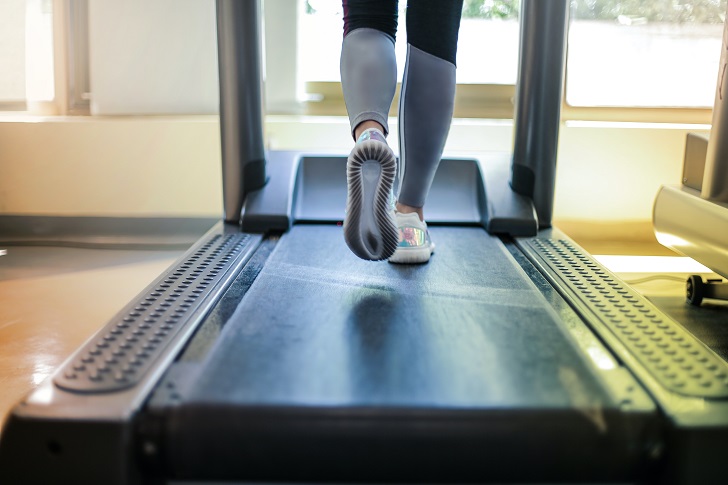
Exercise Motivations: Decoding the Enigma of Fitness

Exercise is an essential component of a healthy lifestyle. People engage in various physical activities for numerous reasons, from improving their physical fitness to enhancing their mental well-being. Below, we will explore the top 12 reasons individuals exercise and the benefits associated with each.
Weight Management
One of the primary reasons people exercise is to manage their weight. Regular physical activity and a balanced diet helps burn calories and maintain a healthy body weight. Exercise increases metabolism, builds lean muscle mass, and aids in fat loss, making it an effective tool for weight management.
Improved Physical Health
Exercise plays a crucial role in improving overall physical health. Regular workouts strengthen the cardiovascular system, reducing the risk of heart disease, high blood pressure, and stroke. Additionally, exercise helps maintain healthy bones and joints, improves flexibility, and enhances respiratory function.

Andrea Piacquadio/ Pexels | Good things come to those who exercise
Increased Energy Levels
Engaging in physical activity boosts energy levels and combats fatigue. Exercise stimulates the release of endorphins and natural mood elevators, providing a sense of vitality and increased productivity throughout the day.
Stress Reduction
Exercise serves as an excellent stress reliever. Physical activity helps release tension, reduces anxiety, and improves overall mood. Regular exercise also enhances the brain’s production of serotonin and dopamine, neurotransmitters associated with feelings of happiness and well-being.
Enhanced Mental Health
Exercise not only benefits physical health but also positively impacts mental well-being. Regular physical activity has been shown to reduce symptoms of depression and anxiety, improve self-esteem, and promote better sleep. Exercise stimulates the brain, leading to improved cognitive function and increased focus.
Disease Prevention
Regular exercise is a key factor in preventing various chronic diseases. Physical activity can reduce the risk of developing type 2 diabetes, cancer, osteoporosis, and metabolic syndrome. Incorporating exercise into one’s routine contributes to a healthier lifestyle and reduces the likelihood of disease.

Sebastian Angarita/ Pexels | The harder you exercise, the stronger you become
Social Interaction
Exercise can be a social activity, providing opportunities to meet new people and strengthen existing relationships. Joining group fitness classes, sports teams, or recreational activities allows individuals to connect with like-minded individuals, fostering a sense of community and support.
Increased Brain Function
Exercise has a profound impact on brain health and cognitive function. Regular physical activity promotes neuroplasticity, the brain’s ability to form new connections and adapt. Studies have shown that exercise improves memory, attention span, and overall cognitive performance, reducing the risk of age-related cognitive decline.
Longevity
Leading an active lifestyle is associated with increased longevity. Regular exercise helps maintain optimal health, reduces the risk of chronic diseases, and improves overall quality of life. Physical activity enhances cardiovascular health, strengthens the immune system, and contributes to a longer and healthier lifespan.
Personal Achievement and Goal Setting
Exercise provides a platform for personal achievement and goal setting. Whether training for a marathon, reaching a weightlifting milestone, or improving overall fitness levels, setting and achieving exercise-related goals can boost self-confidence, motivation, and a sense of accomplishment.

Wijs\ Pexels | Exercise is like a tribute to the heart
Enjoyment and Recreation
Exercise is not solely about achieving specific fitness goals; it can also be a source of enjoyment and recreation. Engaging in activities such as dancing, hiking, swimming, or playing sports allows individuals to have fun, relieve stress, and experience a sense of fulfillment. Finding pleasure in physical activity increases the likelihood of maintaining a consistent exercise routine.
Improved Sleep Quality
Regular exercise can significantly improve sleep quality. Physical activity helps regulate sleep patterns, promotes deeper sleep, and reduces the likelihood of insomnia. By tiring the body and reducing anxiety, exercise prepares the mind for restful sleep, increasing energy and productivity during waking hours.
The reasons why people exercise are as diverse as the individuals themselves. The benefits of exercise are undeniable, from weight management and improved physical health to enhanced mental well-being and personal achievement.
Regular physical activity contributes to a healthier body and promotes a happier and more fulfilling life. So, lace up your sneakers, find an activity you enjoy, and embark on a journey toward a healthier you!
More inFitness
-
`
Understanding Health, Fitness, and Performance – A Runner’s Guide
Running isn’t just about putting one foot in front of the other—it’s about aligning your goals with the right training strategies...
April 11, 2025 -
`
Medicare Costs Are Rising — Could Voluntary Enrollment Be the Solution?
Many assume Medicare and Social Security are separate programs. However, opting out of Medicare comes with a major consequence—losing Social Security...
April 4, 2025 -
`
Top 9 Beauty Products From Lady Gaga’s Haus Labs
Lady Gaga has always been known for her bold style, and her beauty line, Haus Labs, is no exception. The brand,...
March 26, 2025 -
`
The Fitness Routine That Keeps This 82-Year-Old Trainer Feeling 50
Harry King isn’t interested in clichés about “defying age.” He’s too busy lifting weights, hiking miles through rugged trails, and proving—without...
March 20, 2025 -
`
Is Red Meat and Sugar Raising Colorectal Cancer Risk in Young Adults?
Colorectal cancer has long been associated with aging, but a concerning shift is happening—more young adults are being diagnosed with the...
March 14, 2025 -
`
Why More People Are Turning to Gyms for Mental Health
Exercise has always been associated with physical health, but more people are now realizing its impact on mental well-being. Gyms are...
March 6, 2025 -
`
How Gamification Is Shaping the Future of Cosmetics Marketing
In recent years, cosmetics brands have embraced gamification to engage customers in exciting and interactive ways. By incorporating game-like elements into...
February 26, 2025 -
`
Jelly Roll Drops 130 Pounds and Prepares for 5K Race
Jelly Roll has been making waves not just in the music industry but also in his personal health journey. Over the...
February 20, 2025 -
`
What Is Lüften and Why Should You Do It in Winter?
Proper ventilation is essential for maintaining indoor air quality, especially during colder months. In Germany, a traditional method called lüften has...
February 13, 2025















You must be logged in to post a comment Login